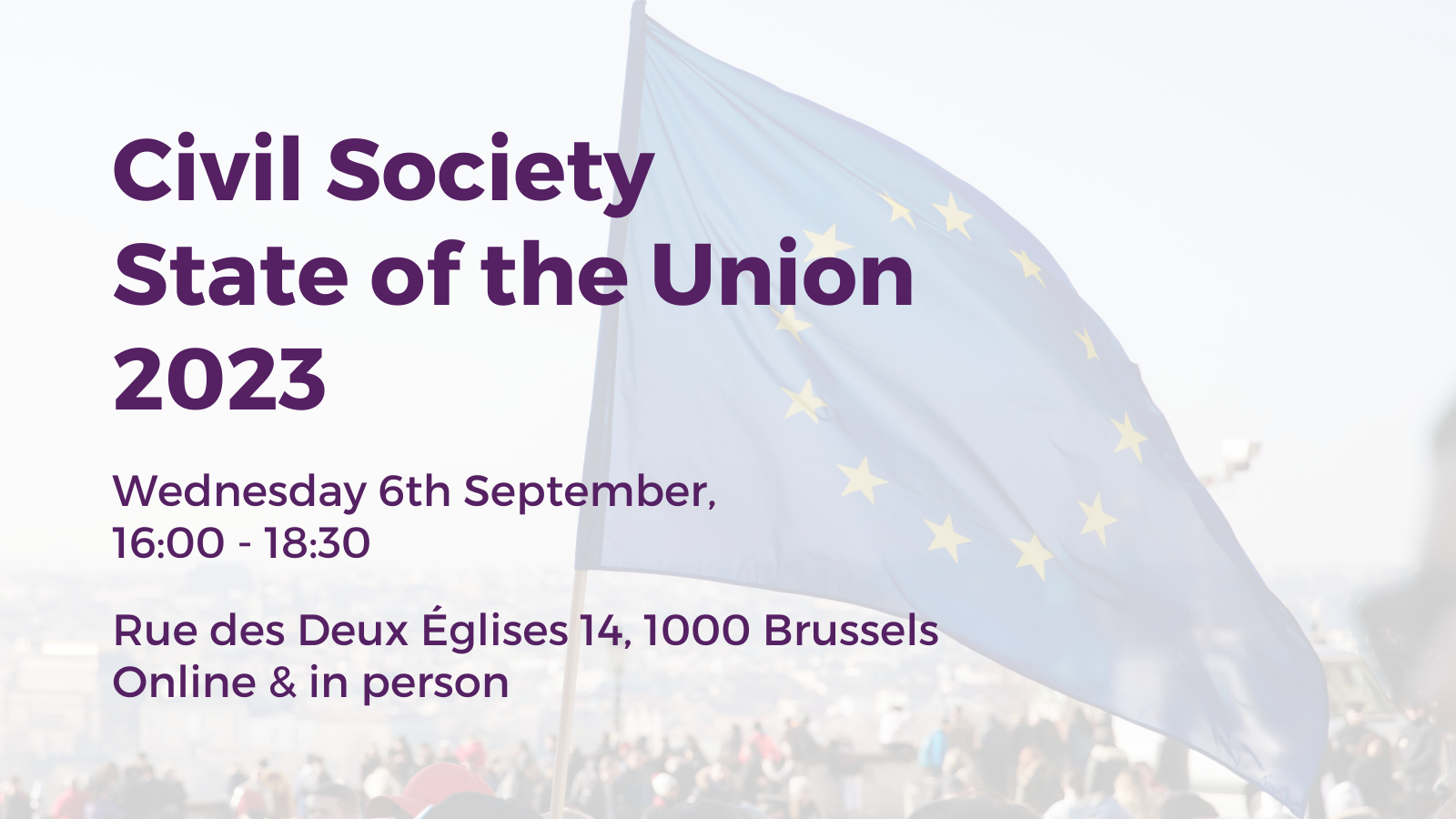
The CS SOTEU 2023 Report, addressed to EU institutions and EU Member States, proposes CSOs vision and critical recommendations for a more democratic, green and just European Union.
This report counted with the contributions of 43 independent CSOs.
Under Chapter 5 A digital transformation that leaves no one behind in the EU, the subgroup, chaired by Elisa Lironi from ECAS, has compiled 84 recommendations across 5 focus areas: Digital democracy, Digital education, Digital safeguards, Digital rights and freedom online, and Digital economy.
The recommendations presented in this chapter aim to impact future policymaking and debates on digital transformation in the EU to make it truly inclusive for all, while, at the same time, taking stock of the EU regulations and advancements in this area since the end of the Conference on the Future of Europe in May 2022 and under the European Commission’s priority of ‘A Europe fit for the digital age’.
Here are the main takeaways.
First and foremost, all EU citizens must have access to basic digital technologies and be provided with the competencies and skills to navigate the digital world without further deepening the existing digital divide or creating new inequalities. EU institutions and Member States should therefore make access to affordable and high-speed internet a fundamental right for their citizens. They must also ensure accessibility and availability of infrastructures and technologies, as well as provisions and learner-centred programmes for digital education, especially for citizens in vulnerable positions and at risk of social exclusion.
Second, when increasing the use of Information and Communication Technology in political and governance processes (including e-participation), policymakers at all levels must ensure its efficiency, security and accessibility to allow more services and interaction between citizens and their governments. For e-participation tools specifically, governments must guarantee follow-up with citizens on the impact their contributions have (or not) on policymaking processes, and why (or why not).
EU institutions must set up certain safeguards, including EU policies and regulations, and defend citizens’ digital fundamental rights to ensure the respect of values, ethics and norms in the digital space in order to safeguard and strengthen our democracies in the digitalisation process, while at the same time staying competitive and innovative on the global scene. For example, developing Artificial Intelligence that respects fundamental rights should not be constrained in the EU or it will be developed in other parts of the world with far fewer safeguards. Also, European digital policies need to enhance the protection of citizens’ rights and online freedom. Civil Society Organisations are in fact raising concerns regarding privacy issues, the surveillance of people, discrimination and biases in AI and biometric mass surveillance technologies, as well as lack of access to new technologies.
Lastly, in the area of economy, EU institutions must ensure that the digital computing technologies in use fully respect the environment and benefit society as a whole, whilst appropriately addressing the challenges. Regulations must prevent large online platforms from abusing their market power, address problematic aspects of online services, recognise the importance of media services of general interest and increase the accessibility to these services, regulate and establish a harmonised set of rules for crypto-assets, and ensure uniform operation rules, open competitiveness and fair working conditions for online platform workers.
In conclusion, the EU has great potential to be a front-runner in the digital domain. To achieve this, EU institutions and Member States must place human rights and democratic principles at the centre of policymaking processes, alongside innovation and competition concerns.
In other words, putting human rights first and enabling a digital transformation in the EU that is shaped by the people for the people.

Read the full report below: